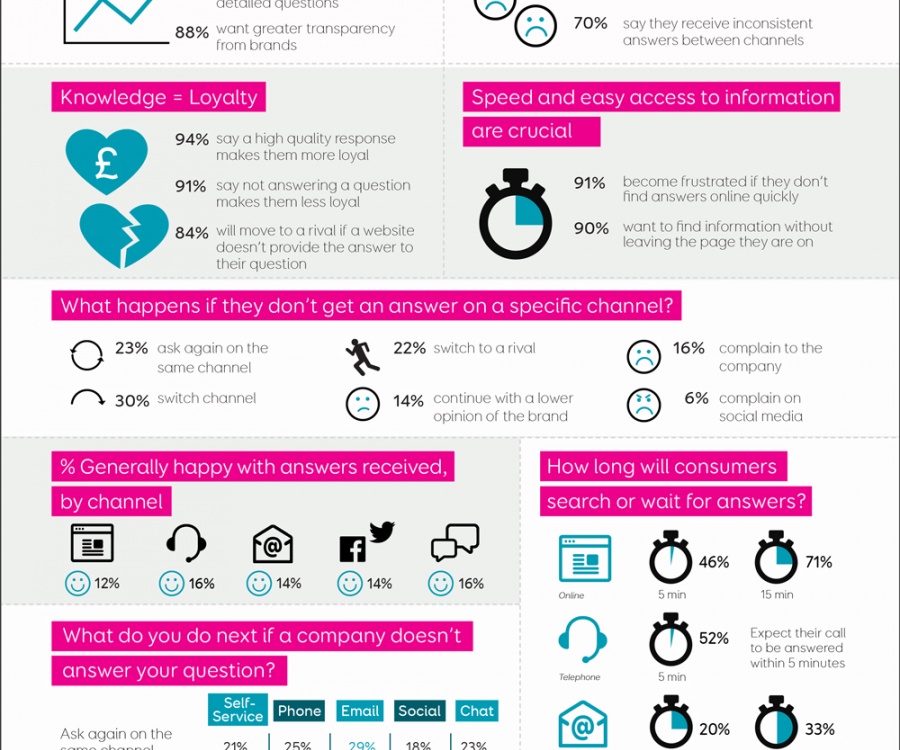It may seem counterintuitive, but retailers should welcome the irate shopper who vents her frustration in an animated scene on the sales floor. That’s because it’s the mistreated customer who walks out the door in a silent huff who places the most revenue at risk, according to a collaborative study of dysfunctional retail touchpoints conducted by LoyaltyOne and Verde Group with Professor of Marketing and Psychology, Dr. Deborah Small, at the Wharton School of the University of Pennsylvania.
The March 2015 survey shows that approximately half of 2,500 U.S. consumers polled reported experiencing a problem on their last shopping trip. Of those customers, 81 percent decided not to contact the retailer about the issue. Among these silent shoppers, 32 percent said they were unlikely to recommend the retailer to friends and family, putting these shoppers at-risk of decreasing their spend with the retailer.
By comparison, the study shows that shoppers who did notify retailers of their poor experience and had their problem completely resolved were 84 percent less likely than silent shoppers to be at risk of decreasing their spend.
“The results are a resounding confirmation that poor customer experiences have a considerable negative impact on shopper spend and attrition which can run into the billions,” says Dennis Armbruster, LoyaltyOne Consulting Vice President and Managing Partner. “We’re ushering in a new era of customer experience measurement vital to retailers looking to make even more informed decisions.”
Building on its leading behavioural analytics solution, LoyaltyOne Consulting has partnered with The Verde Group, a leading customer experience research consultancy. Verde's proprietary Revenue@RiskTM analysis will use experience impact modeling to identify the specific customer experiences most damaging to customer loyalty behaviors and prioritize them according to impact on revenue and market share.
Retailers should take note of the importance in identifying specific customer experiences most damaging to customer loyalty as billions of dollars are at risk. Below is the ranking per category:
- Mass merchandisers are putting 25 percent of potential revenue at risk
- Apparel retailers are putting 16 percent of potential revenue at risk
- Department stores are putting 15 percent of potential revenue at risk
- Drugstores are putting 12 percent of potential revenue at risk
- Grocers are putting 11 percent of potential revenue at risk
“Our methodology precisely measures the impact of ineffective customer touch points. Insight around the effects of poor customer touch points can help retailers reduce the risk of negative customer experiences, while also enabling them to proactively design experiences that positively influence spend, visit frequency and basket size,” says Paula Courtney, President of Verde Group.
The survey also revealed that big spenders within a category disproportionately experience certain problems:
- Mass Retail “Check Out” Risk: Shoppers frustrated by check out wait times reported spending 23 percent more than the average mass retail customer
- Department Stores “Not-My-Department” Staff Attitude: Shoppers troubled by an associate’s not-my-department attitude reported spending twice as much as the average department store customer
- Apparel Retailers “Ship Date”: Particularly in their online channel, customers who cited their inability to obtain a specific date or time to receive an online order reported spending 66 percent more in the category
“In a very robust platform, these partners have taken the psychology of shopping and married it with the economics of shopping. Insights around the impact of the silent customer could prove to be valuable tools for retailers looking to minimize the risk of attrition created from weak customer experiences,” says Dr. Deborah Small, from The Wharton School of the University of Pennsylvania.
Source: LoyaltyOne





